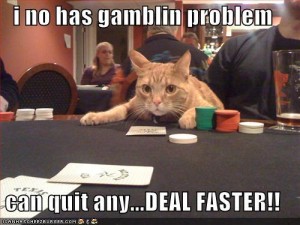With the recent passing of Oliver Sacks, I was reminded of the moving essay he wrote after learning he only had a few months to live. I’m very grateful that he spent one of his last precious days on this planet sharing his reflections and thoughts about what he finds worthwhile. I’m always interested in how thoughtful people spend their time, since I tend to think of us all as being short on time and never truly aware of its value until it’s almost gone.
So, let’s discuss it now. In this age of cell-phones, we’ve become adept at never “wasting” time, but not as good at “spending” time. As a believer in the wisdom of the masses, I think one of the best ways to find out what I should be doing with my free time is to compile the ideas from essays, such as the gem Dr. Sacks and others have left us with. After all, “ask the audience” beats “phone a friend” hands down.
Supposing that all of the top responses are worth doing and that I should spend my free time in proportion to the number of votes received, here are the ideas…
| How To Spend Your Time | Votes | % | |
| Connect with Loved Ones. Deepen friendships / make a difference in lives around you. | 14 | 22% | |
| Have Fun. “Squeeze as much happiness” as you can. Laugh. Be entertained by cats. | 7 | 11% | |
| Be In The Moment. Take dog for a walk, enjoy a sunset, travel, eat favorite food. | 7 | 11% | |
| Learn and Discover. Develop abilities or character / new levels of understanding and insight | 6 | 9% | |
| Do Something Useful. Your profession / achieve things that contribute to society | 5 | 8% | |
| Do Something Creative. Art / writing. | 5 | 8% | |
| Be Kind. Be gentle to each other. | 4 | 6% | |
| Relieve Suffering. Help people / share knowledge. | 4 | 6% | |
| Read. Connect with people who came before us. | 3 | 5% | |
| Enjoy Music. | 3 | 5% | |
| Enjoy a Hobby. Gardening. | 3 | 5% | |
| Give your kids Opportunity, Skills, and Empathy to enjoy their lives. Show them wonder. | 3 | 5% |
Sounds like a great day to me! Well, except for the gardening (someday, I expect that a “gardening gene” will activate and I’ll suddenly have an irresistible urge to pull weeds until my back hurts). The clear winner was connecting with loved ones. I’ve always been one to repeat the mantra “when you’re on your deathbed, you’re not going to wish you spent more time at work.” One of my proudest moments was when, instead of asking for a raise, I took the bold step of asking my manager to cut my workweek and pay by 20% so I could spend more time with my family. Her initial response was an incredulous “you can’t do that, you’re a manager!” but later had a change of heart and said she admired the move. I definitely noticed the increase in my time and quality of life much more than I missed the extra pay. If you can afford to do this, why wait for a health scare to send you home to the people who matter most in your life?
In second place, there was a tie between “having fun” and “being in the moment”, if those are even different things. Since reading these essays, I’ve been more on the lookout for opportunities to find memorable moments in life to savor and it’s already paying off. My most recent precious moment was when my family and I were staying at a hotel on the beach and my 12-year-old daughter wanted to go out to see the ocean at 10 pm! I wasn’t even sure if we were allowed to go out there, but armed with the wisdom of the masses telling me that unique experiences like that are important, we went out into the darkness. Nobody else was around and it was so dark and clear that, as invisible waves crashed on the shore, we could actually see the Milky Way stretching across the sky for the first time. She later said that she’ll remember that experience forever.
In our daily rush to check off our to-do lists, moments like those are the ones that most of us let slip by because we “don’t have time”, while the few who truly know the value of time understand that what we actually don’t have time for are missed opportunities.
